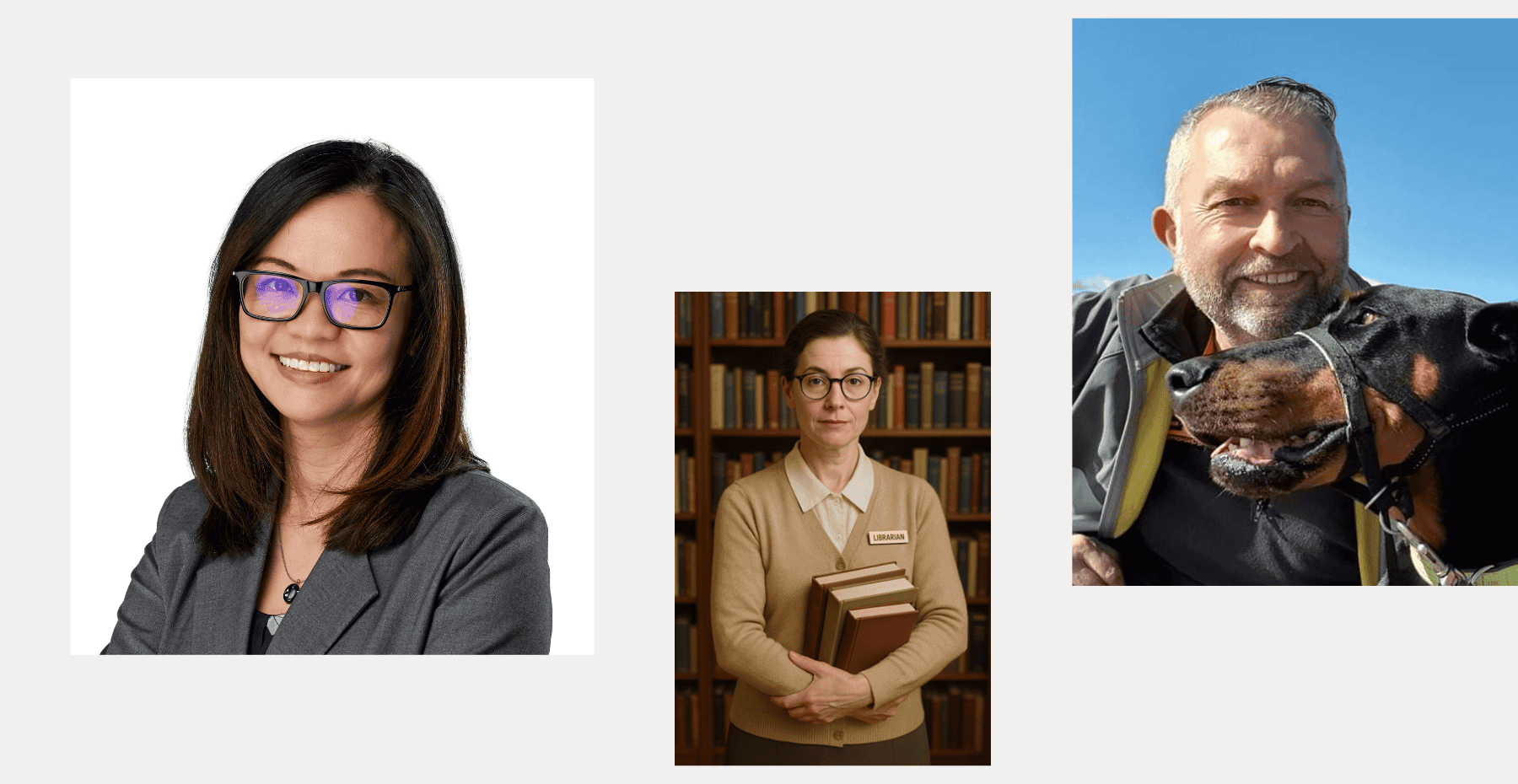Librarians Delivering More Than Expected: Fluid Library Management and How It Works
Today’s academic librarians work in a fast-moving environment and must be versatile, agile and well-informed. They are often as or more highly qualified than the academics they serve. Their aim is always to deliver more than expected.
This year’s De Gruyter Brill Asia spring webinar took place on Thursday, May 15. There were more than 450 registrants from around the world and more than 130 attendees at the actual event. The speakers were Dr. Natalie Pang, University Librarian at the National University of Singapore (NUS), and Mr. Steve Sharp, Associate Director of Library Services at Sheffield Hallam University, UK (SHU). The webinar represented the first of a new series – “East meets West” – in which speakers from different parts of the world share their experiences and insights about contemporary topics of interest to all academic librarians. For the first time in Asia the webinar was facilitated by Linda Bennett and Annika Bennett of Gold Leaf. The De Gruyter Brill sponsor was Ms. Lervinia Swee.
You are currently viewing a placeholder content from YouTube. To access the actual content, click the button below. Please note that doing so will share data with third-party providers.
As the title suggests, the webinar was about the ‘how’ of delivering superlative modern academic library services, by addressing complex patron needs in the face of declining budgets. Dr. Pang spoke first. She said the two driving forces behind modern higher education are the restructuring that is currently taking place and the burgeoning importance of interdisciplinary and multidisciplinary degrees. Consequently, the academic library must make a rapid shift towards centralized coordination based on key functions.
This has immediate implications for subject librarianship, faculty engagement, library instruction and training, as well as longer-term implications for library innovation, partnerships and the development of libraries as places. At NUS she has introduced a matrix system of reporting to inject opportunities for collaboration across functional teams, rejuvenate the development of core library competencies in new and student-focused ways, and provide opportunities for leadership development and personal portfolio building. Natalie admitted that not everyone likes this approach – but the key thing is to get a “critical mass” of supporters. Radical change is also taxing, and it is important to make sure that no one is overtired.
“Students remain the heartbeat of the library’s activities; it is therefore essential to engage them as co-creators and partners and open up opportunities for them to actively engage the library as a living lab, to grow professionally, incubate and test ideas.”
She went on to say that students remain the heartbeat of the library’s activities; it is therefore essential to engage them as co-creators and partners and open up opportunities for them to “actively engage the library as a living lab, to grow professionally, incubate and test ideas.” Working spaces in the library of the NUS graduate school have been redesigned by consultation with students, alumni, staff and the Singapore community at large.
Faculty and students are often hard to engage, because they are extremely busy with their own teaching, learning and research. It is therefore the library’s role to find synergies that make collaboration attractive. These might include educational partnerships that leverage on mutual strengths; professional impact and personal growth for students; increased contact with librarians who teach in both the formal and informal curriculum, and help with work on curriculum reforms. Librarians function as “bridging nodes” for interdisciplinary and multidisciplinary teaching and learning.
Dr. Pang concluded with two profound thoughts: firstly, when introducing fluid library management, changing the mindset is of paramount importance; and secondly, what does the “more” of “librarians delivering more than expected” actually mean? More means better, smarter, more targeted, not more output – “the library is not an assembly line.”

Steve Sharp began by saying that much of Natalie’s presentation resonated with him. The library at Sheffield Hallam had already undergone one major restructuring and was in the process of introducing another. Changes included the following:
- Removing the traditional subject librarian role and replacing it with liaison librarian roles. The “typical” librarian no longer exists – though Steve used AI to compile a very powerful picture of the stereotype
- The redefinition of three library manager roles, to make them responsible for three interrelated areas: information & digital literacies and partnerships; enquiries & knowledge exchange; learning spaces & customer experience
- The rationalization of work between Research & Innovation Services (RIS) and the library’s research support team
- Redefining roles within library resources: acquisitions; access & supply; metadata services
- The cross-skilling of lower graded staff to act as a flexible ‘pool’
- Making special collection & archives part of the Associate Director of Library Resources portfolio, together with print services.
“Artificial Intelligence is perhaps the greatest challenge now facing academic librarians – the technology is developing faster than the ability to keep up with it.”
Steve said that as well as serving library patrons better, these changes helped the library to focus on issues in the wider ecosystem that the library must now address: for example, the need to move away from “big deal” journals content, because current commercial publishing models are unsustainable; accelerating the move towards open access publishing; the fostering of better skills in repository and data management; and the creation of a publishing role for the library. To address some of these issues, SHU introduced short story dispensers five years ago, to allow the dissemination of locally-authored content; became the first English university to introduce a rights retention policy; and started a new SHU Open Press, which is currently appointing an editor-in-chief and editorial board.
He went on to say that artificial intelligence is perhaps the greatest challenge now facing academic librarians – the technology is developing faster than the ability to keep up with it. However, the library is well-positioned to become a centre of expertise on AI – Natali concurred with this – and the assumption of the AI mantle illustrates yet another way in which the librarians are delivering “more than expected.”
The presentations were followed by a very lively Q&A forum which continued until the session ran out of time.
This post merely offers a taster of a key event which covered topics of major importance to librarians with eloquence, expertise and – from both speakers – a skilful lightness of touch. Thank you for attending if you were one of the audience or registered to watch the event afterwards. If you did not do so but would like to watch it now, it may be found here.
You might also be interested in this blog series
[Title Image by koto_feja/Getty Images]
